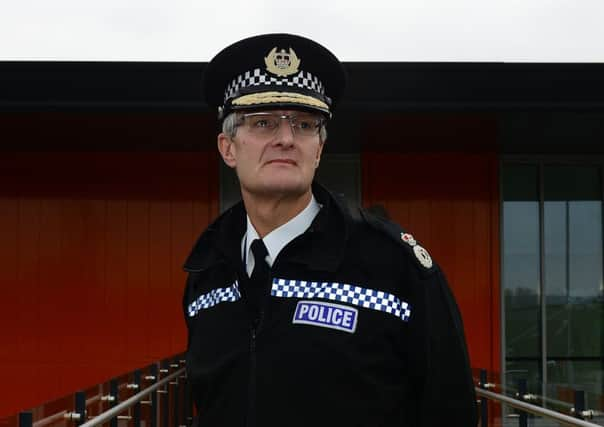Hillsborough families make IPCC complaint about suspended police chief David Crompton


The Independent Police Complaints Commission are now liaising with the office of South Yorkshire police commissioner Alan Billings as to how the matter should be investigated.
Mr Crompton was suspended by Dr Billings in April following criticism of the force’s approach to the two-year inquest proceedings and its reaction to the jury’s verdicts, which found the 96 Liverpool supporters who died were unlawfully killed.
Advertisement
Hide AdAdvertisement
Hide AdThe IPCC, which is investigating police actions in the aftermath of the disaster alongside a parallel criminal investigation into what happened on the day of the 1989 semi-final, also confirmed they are investigating allegations made by former South Yorkshire Police press officer Hayley Court.
It will examine her claim ‘she was directed to draw journalists’ attentions to negative remarks made about Liverpool fans and other organisations during inquests proceedings, as a way of deflecting blame from South Yorkshire Police’.
In relation to its wider investigation that is looking at claims of an alleged cover-up of the reasons behind the disaster, the IPCC said it still hopes to be in a position to present the Crown Prosecution Service with full files of evidence by the turn of the year to enable decisions to be made on whether anyone will face criminal charges.
The watchdog has previously said strands of its operation include investigating alleged amendments to police accounts and allegations that misleading information was passed to the media, MPs and Parliament after the disaster to ‘deflect blame’ from the police on to the supporters.
Advertisement
Hide AdAdvertisement
Hide AdRachel Cerfontyne, deputy chair of the IPCC, said: “Our focus is now entirely on completing our investigations and disclosing evidence to the Crown Prosecution Service to ensure they have everything they need to make charging decisions. The disclosure process we are undertaking is complex and extensive, and probably one of the biggest exercises of its kind.
“It is absolutely vital that this is completed properly and thoroughly – history shows that potential prosecutions can fail if it isn’t done correctly. Both investigations are committing significant time and resources to the task.”